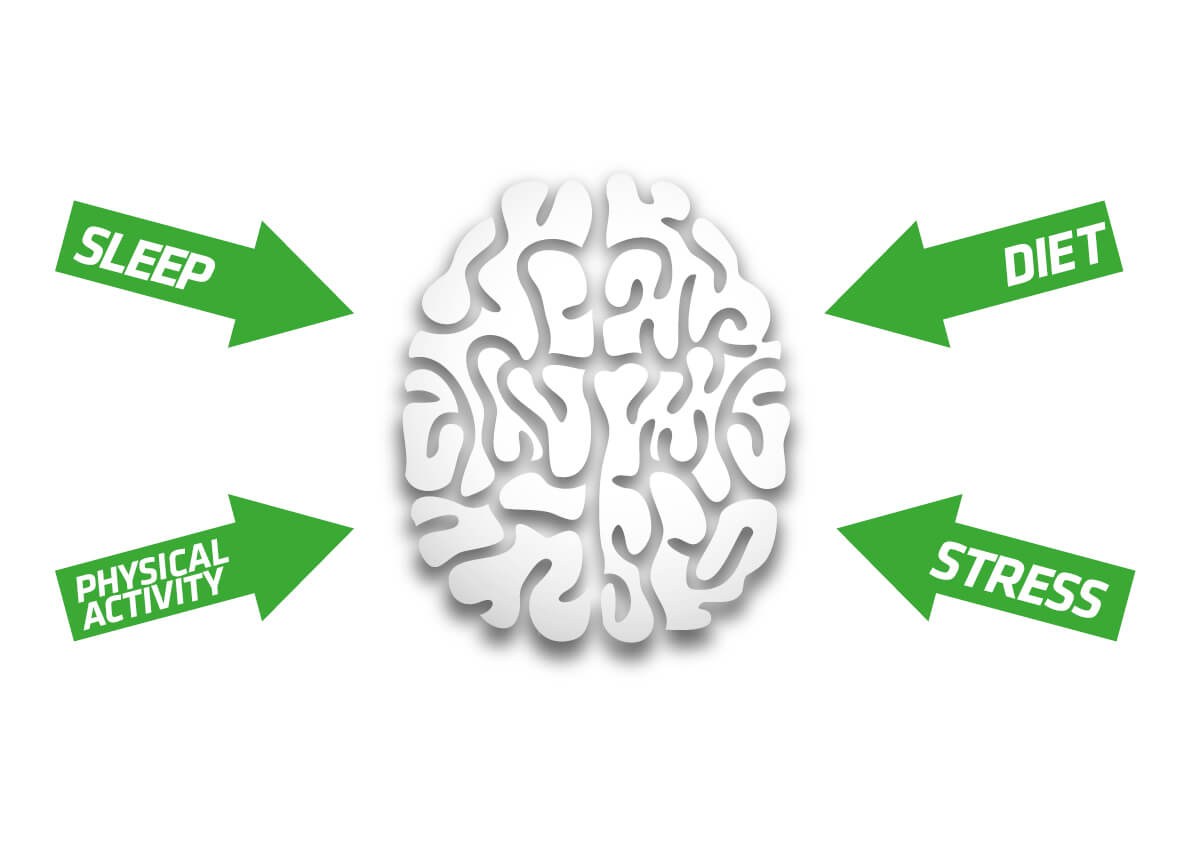Everyone would like his brain to work at full speed. Greater efficiency at work, better memory and concentration, less time devoted to achieving the set goals - these are very desirable issues. However, few people know how to make the brain work more efficiently and effectively. Below are the simplest, and the best methods to support the work of the brain.
Our brain is constantly overloaded

It is not easy for our brains, we live under constant pressure - we have always too little time and more and more things to do. We add further duties to the list, the stress builds up, and we begin to neglect basic but extremely important physiological activities such as sleep or proper diet. You return home after a long day and you are dead tired. You would like to do many things, but you have no strength. In addition, you are constantly bombarded with new stimuli - news, information from television or the press. It turns out that all these factors affect the functioning of the brain negatively.
What factors affect brain function?

1. SLEEP
The right amount of sleep is an extremely important issue - essential for maintaining full health. Its proper hygiene and duration affect many aspects - the action of hormones, the process of slimming, building muscle mass or brain work. Sleep plays a significant role in its functioning. In our short-term memory - lasting about 30 seconds from the appearance of new information, we are able to store four to seven messages. The number of memorized messages is an individual matter, however, let us assume that we can memorize a seven-digit telephone number for 30 seconds. After a sleepless night, this amount will drop to one or two pieces of information - so we encode only one or two digits. Each of us could certainly observe that the "sleepless night" negatively affects the short-term memory. In addition, during sleep, memory consolidation occurs, which involves the preservation of memory traces and the brain transforms short-term memories into long-term memories.
2. PHYSICAL ACTIVITY
Physical exercises are another issue affecting the functioning of the brain. Movement activity supports blood circulation to the brain, making it oxygenated. In addition, it supports short-term memory - by preventing degradation of the hippocampus, which is part of the brain responsible for memory. Of course, you should remember about the moderation - more does not mean better. The appropriate number of training units is beneficial, while too much training volume will be too much stress for the body, which will have a negative impact on the brain.
3. STRESS
An extremely important element affecting the proper functioning of the brain is stress. We can divide it into mental and physical - excess training or injuries. In addition, we distinguish chemical stress, i.e. for example, toxins and heavy metals. Too many stressors can lead to damage to the hippocampus, as well as to weaken short-term memory and have a destructive effect on the brain structure. Of course, stress is essential for maintaining health, however, the chronic functions negatively. Many methods have been explored to help manage stress - for example, meditation, yoga, acupuncture or supplementary support.
4. DIET
Proper nutrition has a huge impact on the brain. The method of nutrition used should be based on the least processed and highly nutritious products. The diet should be anti-inflammatory, because excess inflammation will slowly degenerate the brain. The menu should abound in vitamins and minerals that support its work. A healthy, low-processed diet, rich in vegetables and fruits is the key to maintaining the proper functioning of the brain. It is worth taking care of an adequate supply of omega-3 fatty acids, magnesium and B vitamins (mainly B12). Of course, supplementation is an individual matter, because both the deficiency and excess of minerals is harmful.
Increasingly, the intestines are said to be our "second brain". Well, the condition of the intestinal microflora is strongly related to the work of the nervous system. The vagus nerve is the longest nerve of man. It connects the intestines with the brain - it is therefore an important communication node between them. It is estimated that only about 10% of information runs from the brain to the intestines and up to 90% of information from the intestines to the brain! In summary, if something bad happens in the intestines - our brain automatically learns about it. Probably you have experienced intestinal problems just before an important exam or job interview. It is connected with the communication between the viscera and the central nervous system. In addition, many scientific studies speak about the positive effects of probiotic preparations in depression or schizophrenia. In addition, it is also worth taking care of proper hydration, as 1-2% dehydration worsens cognitive functions.
Supplementation - safe nootropic

If you take care of all the issues related to changing your lifestyle, you can think about using nootropics. These are substances that support brain work - increase memory, concentration, as well as learning and motivation. These features work in several ways - they are safe because they do not cause addiction and are not toxic to the body. The principle of operation is based on the change in the availability or concentration in the brain of the supply of neurotransmitters (chemical compounds whose molecules transfer signals between nerve cells), enzymes and hormones. In addition, they improve the flow of blood to the brain, which affects its better oxygenation.
• CHOLINE
Citicoline (CDP-choline) is the best form of choline to support brain function. It affects the increase of acetylcholine - a neurotransmitter that is associated with the ability to learn. Studies have shown that the use of citicoline affects concentration and concentration, supports the fight against memory disorders. This supplement is safe - it is used in the case of strokes and neurodegenerative diseases.
• ALPHA GPC
Alpha GPC (glycerophosphocholine) is a very popular version of choline, also effectively improving cognitive functions. Using it reduces the effects of stress - it calms and relaxes, supports the regeneration of the nervous system. Because of its action, it is best to take it before bedtime.
Conclusions
There are many ways to improve the brain, but the most important thing is to look after the basics. The main aspects to pay attention to are the right amount of sleep, a balanced diet, physical activity and caring for a lifestyle. Supplements are just an addition to work on improving the condition of the brain.





